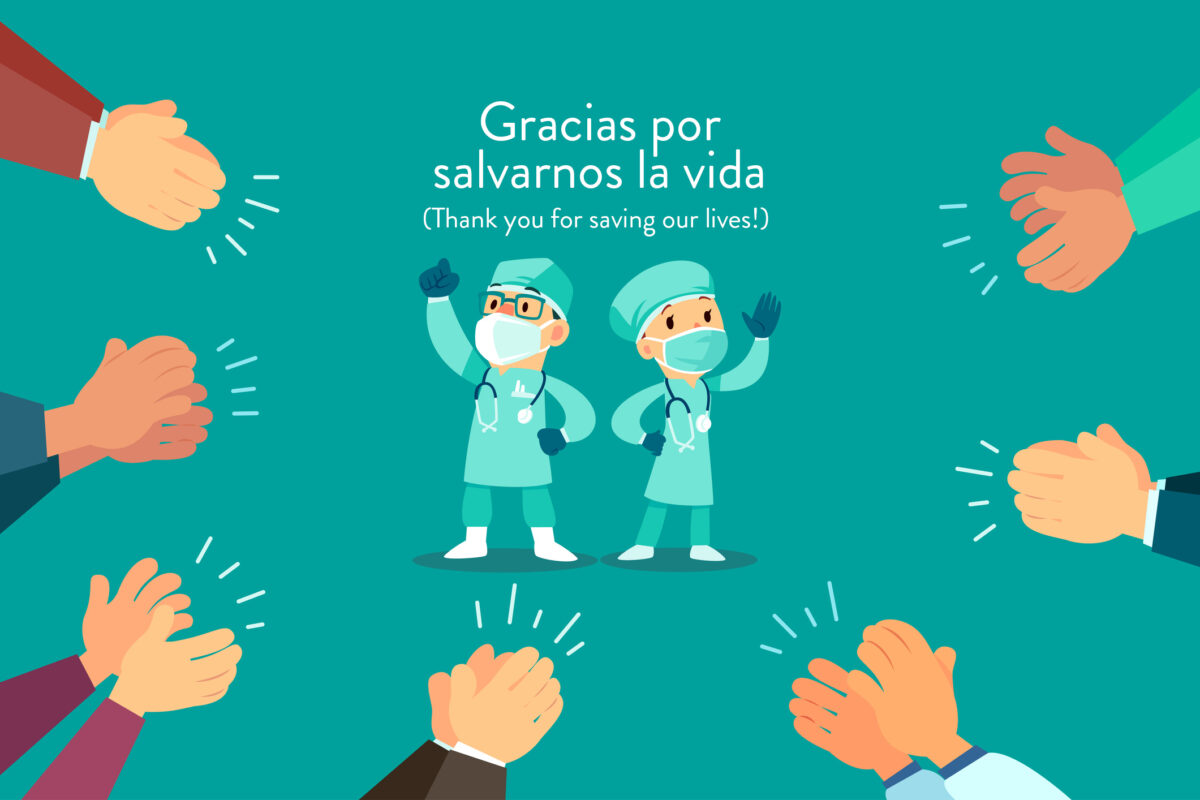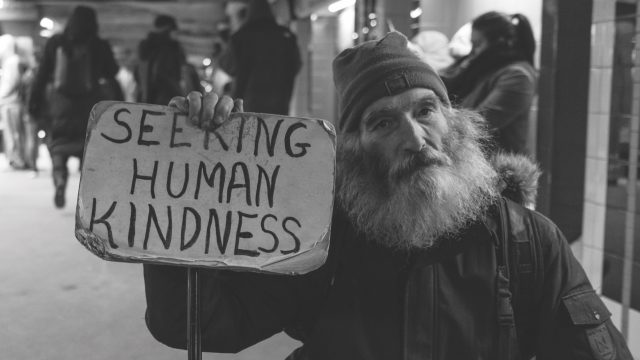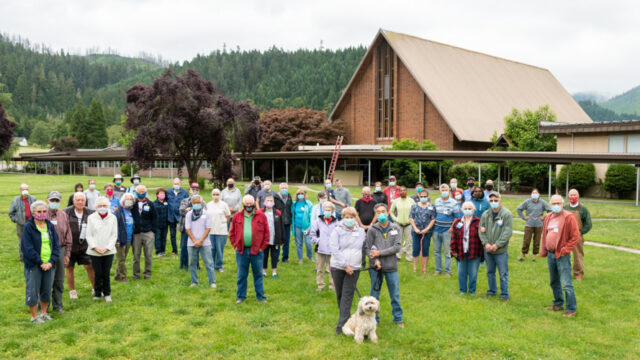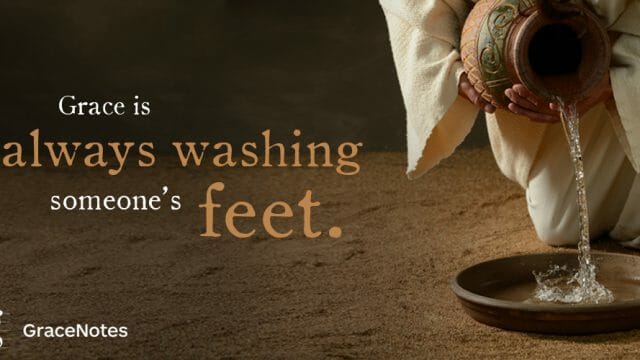Our frontline workers are our lifeline right now. What can we do to say thanks?

“I have been feeling exhausted and drained,” says 23-year-old Janelle Thomas, an ICU nurse at the University of Maryland Baltimore Washington Medical Center. “On my days off I feel guilty for not being at work because I know my fellow coworkers and friends are being stretched thin. I find myself feeling upset and guilty when I’m with my family because I know there are patients dying without their loved ones present. I feel emotionally drained because every day I have to call and update the wives and husbands of my patients and hear them cry but have to remind them that they can’t come see their husband of 40-plus years. It’s been difficult.”
As a health-care professional on the frontlines of this horrific pandemic, Thomas’s sentiments, reported to news media, echo those of her colleagues around the entire world—those who are placing their lives on the line to care for COVID-19 patients in dire straits. Doing their jobs now comes at the expense of their own mental and physical health, and they aren’t the only ones.
Our grocery store workers may not be intubating anyone, but they’re coming into contact with all of us—some who may be carrying the virus but don’t know it yet, and even those who have mild cases and are still out and about. Any worker who is to leave the safety of their home—our pharmacists and pharmacy techs, sanitation professionals, plumbers, contractors, delivery persons—is helping to keep us afloat in these times, but it puts all of them at great personal risk.
Saying thank you where and when we can is so valued. If you’re a New York City resident who joins the throngs of locked-down citizens to cheer frontline workers each evening, it means a lot. But what else can we do? How do we go beyond saying a simple thank you to our heroes? How can we convey just how much the personal risk frontline workers take on daily really means to us?
Keep Your Homebound Vigil
Even if your state or country is starting to open up, we’re not in the clear yet. That means the threat of this virus exploding on dangerous levels hasn’t diminished. So, if you’re not an essential worker, stay home. “It’s frustrating seeing people protest that they want things to go back to normal when things are only getting worse in the hospitals. It’s almost a slap in the face—they praise us but then don’t heed our warnings,” says Thomas. If our health-care systems become overloaded beyond the point they are already, that means there’s less and less chance of anyone being able to help you should you become infected. This bears repeating: stay home.
Show Respect
There are health-care workers worried about being seen in public wearing scrubs after work because of how they’re treated by others. They’re sometimes on the receiving end of dirty looks, insults, even violence at the hands of misinformed individuals thinking health-care workers are the real threat. If you should see a health professional at the grocery store or gas station, keep your six feet of distance and your mask on, but wave, say thank you, clap, and give them the thumbs up. It’s a scary time, but these precious heroes are not the enemy. No one is.
Pray and Support
Thomas says, “The most helpful thing someone from home can do is continue to pray for hospital staff and show support. I love hearing on the radio [WGTS 91.9] every morning how they are asking people to make signs and pray for us. It’s also very nice coming into work, not having been able to go to the grocery store, to find that someone has donated lunch or dinner to the staff.
Donate Meals
Health-care professionals don’t have time to feed themselves some days. So, to help, donate meals to your local hospital. There are several organizations in every area that are taking donations to purchase meals for staff. Consider donating what you can. If possible, call your local hospital and see if there are any other ways you might be able to contribute your resources within what is feasible for you. Every little bit helps.
Offer Your Service
If there are frontline workers in your friend groups or neighborhoods, offer to pick up essentials for them on your next grocery run. By dropping those goods off on a doorstep and then getting on your way, you’re lessening the load for someone who really needs it.
Create Signage
If you have young kids at home, this would make a great activity that could buy parents a few minutes of quiet time (we hope). Create signs saying “Thank You” or “We Appreciate You” for your sanitation workers and delivery personnel. Hang those signs on your mailbox or wherever they may see them to let them know their hard work is valued.
Use Social Media
Tweet and post your thanks using appropriate hashtags so our frontline workers all over the world catch a glimpse of how valued they are. It can make a big difference, especially when it inspires others to do the same.
These are tough times to navigate. And in these situations, there are always those who have to go out before the rest of us—the very people who end up ensuring our health and well-being. Even while quarantined, there are ways we can honor those who are doing the difficult work on our behalf. Let’s let them know how much we need and appreciate them.








